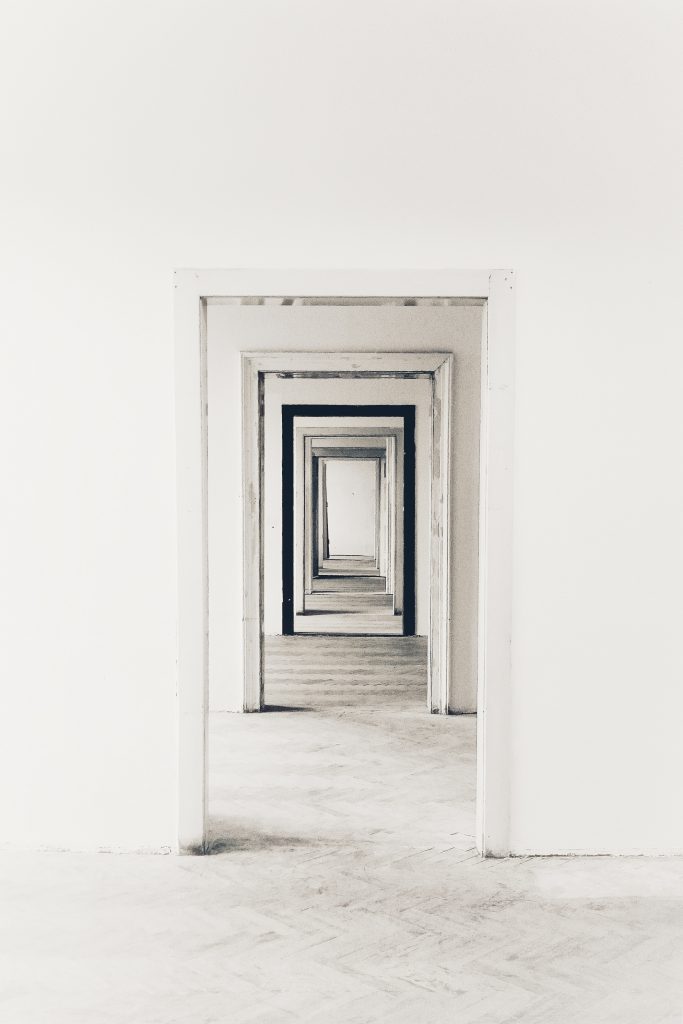In times of crisis, we’re likely to experience some regression. Young parts of us that seek out some authority to blame, some authority to hide behind, someone bigger and more powerful who can be responsible for dealing with this beautiful and at times terrifying world.
Those who step into authority, as parents, religious leaders, politicians, healers, and more may have sensed the strangeness of realizing that projection falls upon you. That you, a human being yourself, as fallible and seeking of safety as anyone else, have been targeted as the one who is supposed to know what’s going on. The right next thing to do to keep people safe. The right way to be in the world to be whole.
And, if you have that authority, you likely do have something to offer. An insight, a process, a plan that will lead everyone through the door from distress to desire. From crisis to normalcy. From illness to haleness.
Yet when we’re on the side receiving that projection, we might feel pressured to behave as though we know more than we do. To be the authority and show no doubt. And sometimes it helps, but often it becomes a barrier to the qualities that made us an authority in the first place, what we needed to practice to accrue that power and insight.
Perhaps the world needs less certainty and more courage. As a therapist, my best offering is my curiosity and a process that helps the client to heal and know themself and discover both the door and what’s on the other side of the door. I may have an idea of what I think is through the door, or I have my biases of what I think should be, but in those moments I am the least curious and the least helpful. What I offer best is the capacity to be in the not-knowing with others, but not to be crushed or overwhelmed by the not-knowing but to let it enliven us. To be excited by the not-knowing, the risk, the opportunity for transformation and the possibility that the other side of the door will be even better, although different and not free of problems.
In times like these, I feel we are all sitting in a great unknowing. There is a giant door through which we are passing, collectively, ready or not. No one knows for sure what’s on the other side. We can practice all of our tools, all of our good skills, stick to our goals, but some of us are feeling a sense of pause even in that. What if this goal I’ve been following is no longer relevant when I move through the door? What if all my work toward being recognized at my job falls to the wayside as the industry collapses? What if my grievances with my friends become buried beneath so much reality? What if all of this fear was for nothing? What if some day I wish I’d had far more fear?
Together we sit in our questions and unknowing, with all its terror and numbness and crankiness and unexpected moments of levity, peace and joy. And even with crisis and pain there is the possibility of richness, of seeing how all our lives we’ve worn a way of seeing that was never fully true. We’ve been ruled by a wounding that’s no longer relevant. We’ve been controlled by fears that simply do not matter. Even in this pain there is the opportunity to set aside all that we’ve been told to like about ourselves, want for ourselves, fear so we can protect ourselves, and discover the truth of who we are.
And if we know that truth, this door could strip away all that no longer serves that truth. We can sacrifice what was burdensome and unnecessary in the flames of aliveness. We can allow the waste and the garbage to be stripped down and pass through, fierce and sharp and ready to make a new world where the old once stood.
To pass through the door is to die. Our bodies may live and our consciousness may persist, but something in the way we’ve lived must die. Something we believed about ourselves and the world must die. Our illusions of separation. Our illusions of control. Our illusions of independence.
And each of us carries our own piece of that death. Instead of worrying about the death of the world, let us tend to our own. Let us keep our bodies alive, and grieve, and care for each other, and let ourselves be changed so that the soul has more room to breathe and adapt to what is beyond the door.

